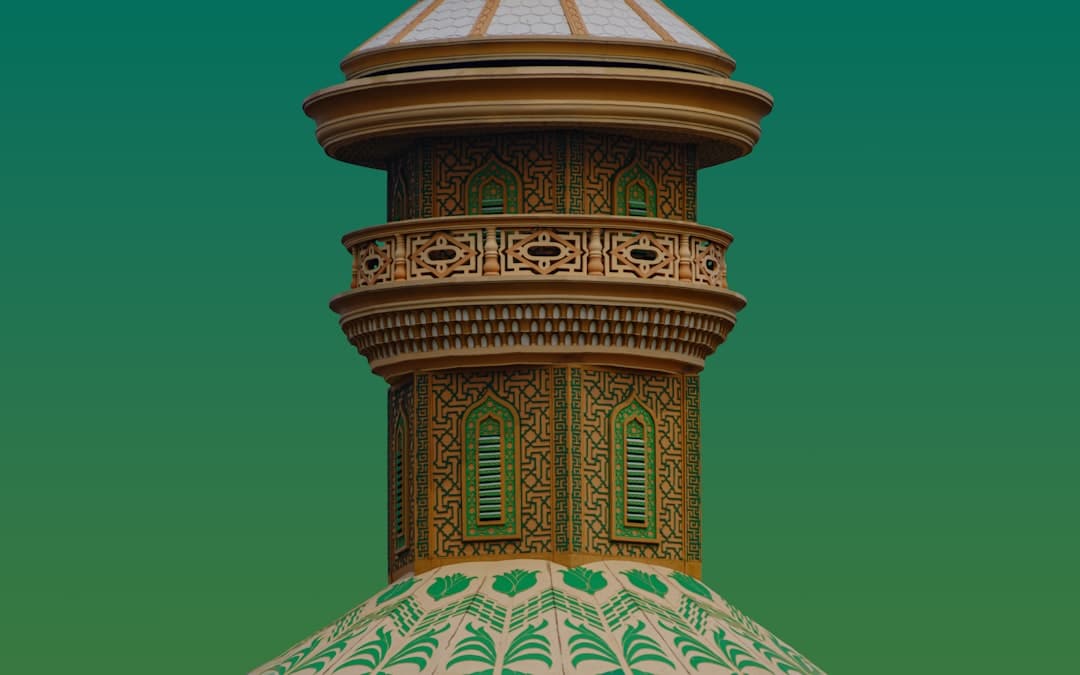Islamic ethics, at its heart, is a living tradition that seeks to guide every dimension of human life toward the pleasure of God (Allah) and the flourishing of creation. Rooted in the Qur’an and the normative example of the Prophet Muhammad (peace be upon him), it offers a coherent moral framework that addresses individual conduct, social justice, economic activity, environmental stewardship, and global relations. As contemporary societies grapple with ethical dilemmas arising from technological acceleration, widening inequality, and ecological crisis, Islamic ethical teachings provide timeless principles that remain strikingly relevant. This article introduces the core tenets of Islamic ethics, highlights their moral teachings, and illustrates how they are being applied in the twenty-first century across diverse fields—from finance and medicine to artificial intelligence and sustainability.
Understanding Islamic Ethics: Sources, Aims, and Scope
Islamic ethics is not a stand-alone discipline; rather, it is organically connected to Islamic law (sharīʿah) and theological creed (ʿaqīdah). Together, these three domains shape a holistic worldview in which belief, worship, and morality flow from the same divine source. The ultimate aim is iḥsā—spiritual excellence—defined by the Prophet as “worshipping Allah as though you see Him, and if you cannot see Him, know that He sees you.”
Revelatory Sources
- The Qur’an: The literal word of God, containing explicit ethical injunctions (e.g., “Do not approach the orphan’s property except in the fairest manner” 6:152).
- Sunnah & Hadith: The Prophet’s sayings, actions, and approvals provide contextual elaboration and model behavior, such as his teaching that “None of you truly believes until he loves for his brother what he loves for himself.”
- Ijmaʿ (Consensus): Agreement among qualified scholars on a point of law or ethics, functioning as a communal safeguard.
- Qiyās (Analogical Reasoning): Systematic extension of textual rulings to new cases, ensuring ethical continuity in novel contexts like CRISPR gene editing or cryptocurrencies.
Teleological Orientation
Unlike deontological or consequentialist theories that isolate duty or outcome, Islamic ethics pursues maṣlaḥah (public welfare) within a theocentric vision. Every action is judged by its capacity to secure:
- Ḥifẓ al-dī – protection of religion
- Ḥifẓ al-nafs – protection of life
- Ḥifẓ al-ʿaql – protection of intellect
- Ḥifẓ al-nasl – protection of progeny
- Ḥifẓ al-māl – protection of property
These five maqāṣid (higher objectives) form the ethical compass for legislation, policy-making, and personal decision-making in Muslim societies and beyond.
Key Components of Islamic Ethics: Virtues, Norms, and Mechanisms
Cardinal Virtues
The Qur’an repeatedly pairs faith (īmā) with righteous action (ʿamal ṣāliḥ), embedding virtue ethics within a devotional framework. Key virtues include:
- Taqwā: God-conscious mindfulness that restrains wrongdoing.
- ʿAdl: Justice in interpersonal dealings and public governance.
- Iḥsā: Benevolent excellence that transcends minimal duty.
- Shukr: Gratitude expressed through stewardship of time, wealth, and the planet.
- Ṣabr: Patient perseverance amid adversity, catalyzing moral growth.
Ethical Norms and Rulings
Islamic jurisprudence (fiqh) classifies human acts into five categories:
| Category | Definition | Example |
|---|---|---|
| wājib | Obligatory | Paying zakāh (almsgiving) |
| mandūb | Recommended | Volunteering at a food bank |
| mubāḥ | Neutral | Choosing between permissible careers |
| makrūh | Disliked | Wasteful water usage |
| ḥarām | Forbidden | Fraudulent investment schemes |
This taxonomy enables nuanced ethical deliberation rather than binary right/wrong judgments.
Spiritual Disciplines that Sustain Moral Character
- Ritual Prayer (ṣalāh): Performed five times daily, punctuating life with moments of accountability.
- Fasting (ṣawm): During Ramaḍā, cultivates empathy for the hungry and curbs egoistic desire.
- Pilgrimage (ḥajj): An annual rehearsal of universal brotherhood and ecological simplicity.
- Zakāh & Ṣadaqah: Mandatory and voluntary wealth circulation to counteract greed and reduce inequality.
Benefits and Importance: Individual, Societal, and Global Dimensions
Personal Integration
Practicing Islamic ethics fosters intrapsychic harmony. Empirical studies from Malaysia and Turkey show that individuals who score high on taqwā indices report lower levels of anxiety and greater life satisfaction. By orienting daily choices toward transcendental ends, believers derive meaning beyond consumerist metrics.
Social Cohesion
The principle of ʿadl mandates institutional checks against discrimination. Historical examples include:
- Caliph ʿUmar’s stipend system (dīwā) that tied income to need rather than tribal nobility.
- The waqf endowments that funded universities, hospitals, and public fountains, creating resilient civil-society networks.
Modern experiments like Islamic microfinance (e.g., Akhuwat in Pakistan) replicate this ethos by offering collateral-free loans grounded in solidarity rather than profit maximization.
Environmental Stewardship
The Qur’anic concept of khalīfah (vicegerency) reframes humanity as trustees, not owners, of Earth. The Prophet’s injunction “If a Muslim plants a tree or sows seeds, and then a bird, or a person or an animal eats from it, it is regarded as a charity (ṣadaqah)” positions ecological care as spiritual praxis. Contemporary green mosques—such as the Cambridge Central Mosque powered by solar and geothermal energy—operationalize this ethic.
Practical Applications in the 21st Century
Islamic Finance & Ethical Investment
By prohibiting ribā (interest) and gharar (excessive uncertainty), Islamic finance channels capital toward equity-based, asset-backed ventures:
- Mushārakah partnerships distribute risk and reward equitably among investors and entrepreneurs.
- Sukūk (Islamic bonds) fund infrastructure while complying with sharīʿah governance boards.
- ESG screening in sharīʿah-compliant funds now integrates environmental and social metrics alongside traditional Islamic filters.
Case in point: the Maybank Islamic ESG Sukuk raised USD 750 million to finance renewable energy projects in Southeast Asia, demonstrating that ethical and financial returns can converge.
Biomedical Ethics
Islamic fatāwā councils apply the maqāṣid to cutting-edge dilemmas:
Organ transplantation is permitted under the maxim “necessities permit the prohibited,” provided informed consent and equitable distribution. Genetic therapy is cautiously endorsed for therapeutic goals but restricted for enhancement or eugenics, lest ḥifẓ al-nasl (protection of lineage) be compromised. End-of-life care distinguishes between withholding futile treatment (permissible) and active euthanasia (impermissible), emphasizing ṣabr and spiritual accompaniment.
Artificial Intelligence & Data Ethics
The OIC AI Ethics Framework (2025) introduces sharīʿah-aligned guidelines for algorithmic transparency:
- Intentionality (niyyah): AI systems must serve human welfare, not manipulative exploitation.
- Non-maleficence (la ḍarar wa lā ḍirār): Preventing harm overrides utility calculations.
- Accountability: Developers and deployers bear moral liability akin to dhimā (surety) in classical law.
Pilot projects, like Qur’anTech in Jordan, deploy bias-mitigated speech recognition to help visually impaired Muslims access classical texts, showcasing ethical AI in service of spiritual inclusion.
Business Leadership & Corporate Governance
The Prophet’s commercial conduct—honoring contracts, truthful advertising, and fair wages—has inspired certification systems such as IBE (Islamic Business Excellence). Global firms adopt sharīʿah advisory boards to operationalize ʿadl and amānah (trust). Unilever’s Pakistan subsidiary, for example, remapped its supply chain to ensure halal integrity and living-wage compliance, resulting in a 12 % increase in brand trust scores.
Social Justice & Human Rights
Classical Islamic jurisprudence developed sophisticated anti-racism norms centuries before the UN Charter. The Prophet’s Last Sermon declared: “An Arab has no superiority over a non-Arab, nor a white over a black, except by piety.” Modern Muslim activists invoke qiyās to extend this principle to refugee rights and anti-xenophobia campaigns. The Amman Message (2004) leveraged ijmaʿ to denounce sectarian violence and affirm the equal citizenship of women and minorities, influencing constitutional reforms in Morocco and Tunisia.
Frequently Asked Questions
What is the difference between fiqh and Islamic ethics?
Fiqh deals primarily with legal rulings derived from textual sources, while Islamic ethics (akhlāq) focuses on inner character and moral motivation. For example, fiqh may declare a transaction valid if contractual conditions are met, whereas ethics asks whether the seller treated the buyer with iḥsā—perhaps offering a fairer price than strictly required.
How can non-Muslims benefit from Islamic ethical principles?
Universal values such as justice, honesty, and stewardship resonate across cultures. Non-Muslim social entrepreneurs can adopt zakāh-inspired wealth-circulation models, hospitals can integrate waqf endowment structures for sustainable funding, and environmental NGOs can deploy khalīfah language to mobilize broader coalitions for climate action.
Does Islamic ethics evolve with time or remain static?
Islamic ethics is dynamic. While thawābit (immutable principles) like the five maqāṣid remain constant, mutaghayyirāt (contextual applications) adapt through ijtihād
























Post Comment